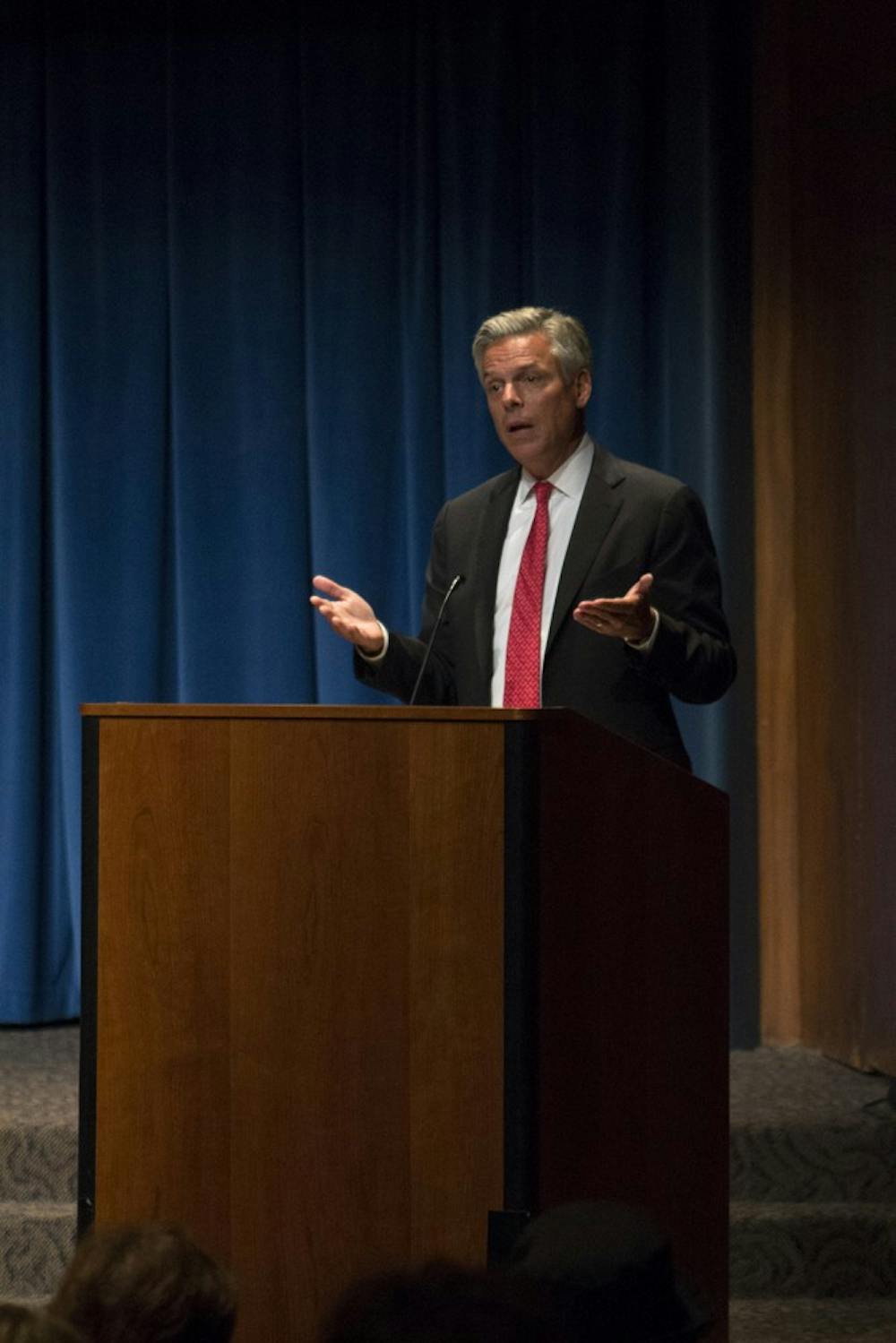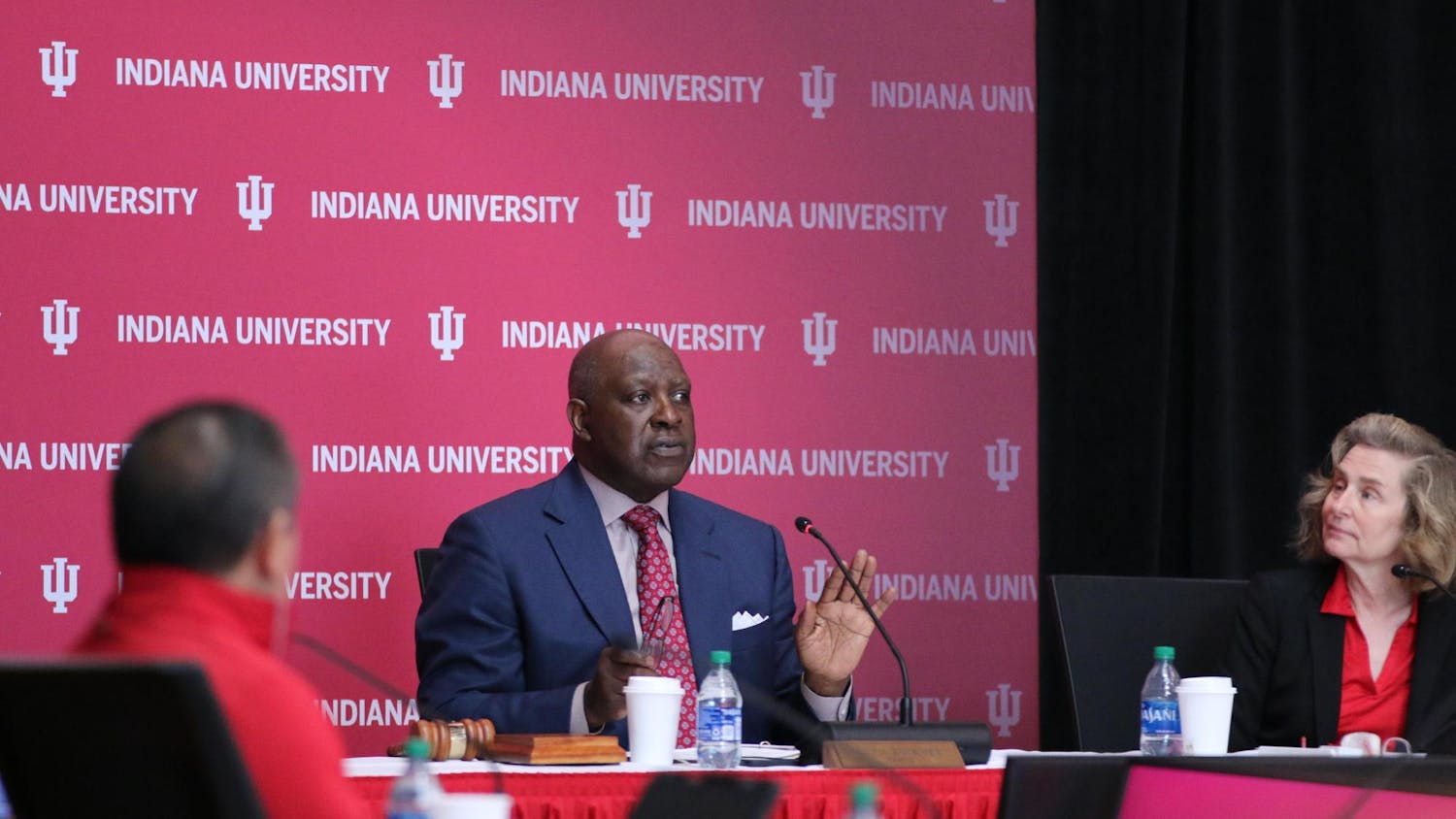Students and faculty gathered from 4 to 5:30 p.m. Wednesday in the Indiana Memorial Union’s Whittenberger Auditorium for the fifth annual Patrick O’Meara International Lecture.
The series, established in 2011, honors IU Vice President Emeritus for International Affairs Patrick O’Meara by bringing distinguished speakers who address critical topics in international affairs to IU.
O’Meara, who was present at the event, provided Huntsman’s introduction.
“Jon Huntsman, governor, ambassador, presidential candidate and political thinker, represents the very best of our tradition, the very tradition I am talking about preserving,” O’Meara said.
Beginning his career in public service as a staff assistant to President Ronald Reagan, Huntsman has since served four U.S. presidents in a variety of positions around the globe, including ambassador to Singapore, deputy assistant secretary of commerce for Asia and U.S trade ambassador.
Huntsman was also appointed U.S ambassador to China by President Obama in 2009, a position he kept until 2011.
Huntsman said the relationship between the U.S. and China will prove to be one of America’s most important, and difficult, relationships in the 21st century.
“Both countries are very different in terms of history, geography, language, culture,” Huntsman said. “The things that will ultimately determine whether the U.S.-China relationship is a success or a failure will be what kind of human capacity have we achieved in terms of better understanding one another.”
Huntsman talked about the importance of trade investment in securing more stable, mutually beneficial international relationships.
“Trade investment is a weapon of peace,“ Huntsman said. “Countries who trade and invest in one another generally don’t go to war with one another. I think that, long-term, this is an insurance policy that we can balance a lot of our differences, which are going to be big, profound and sensitive in years to come.”
Despite the gravity and complexity of these differences, Huntsman said the root of the issue is simple.
“Our problem is that we’ve experienced a thing called human failure,” Huntsman said. “People won’t work together in solving our most pressing issues.”
Huntsman also noted the global drivers that will increasingly shape the world, including diffusion of power in the world, the rise of transnational terrorism, the rise of individual empowerment and demographic trends, such as mass migration and urbanization.
“I have no doubt that when the history books are written at the end of the 21st century, they’re not going to talk about the Great Recession, we’re probably not going to read about government shutdowns,” Huntsman said. “I think we are going to read about the rise of China and how the world responded.”
Attendants were invited to partake in a reception in the President’s Room of the University Club following the lecture.
Huntsman’s speech was free and open to the public.
“This is not just another ordinary period in history — this is another inflection point,” Huntsman said. “This is a serious time, and it requires serious conversation.”






